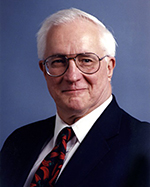
Kate McKay said in an essay:
“It is not pleasant . . . to be criticized. . . (but) we really ought to congratulate ourselves every time we learn of a new fault . . . To know of a fault . . . should be instantly to challenge its continuance.”
This is a major reason we use evaluations in Toastmasters. Evaluators evaluate prepared speeches. General evaluators evaluate the conduct of the meeting – the job done by the meeting Toastmaster. Performances of those selected for meeting roles, such as Timer or Grammarian, are evaluated in their Competent Leader manuals. In some clubs evaluations – in both oral and written forms – are offered to Table Topics speakers as well.
Another perspective on evaluations is that we filter our thoughts as we choose our words with filters composed of our experience, education, and even present mood. The listeners process the words through their filters – and the message they receive may – or may not – be what we sent. Evaluations that tell us what the evaluator heard, saw and felt. They give us feedback we can use to adjust our performance.
Improvement is a process and it is largely dependent on repetition. If we receive an obtuse or ineffective evaluation we learn more about evaluations. If the evaluation is right on – maybe even stings our ego a bit – we learn a great deal about ourselves as well as about the skill. But the process only works only if we use it well.
We will never achieve perfection, but the journey toward excellence is exciting and gratifying. It is not easy. It is not superficial. It is not pain-free. It is emotionally challenging and it confronts our egos and beliefs.
It is worth the effort.
